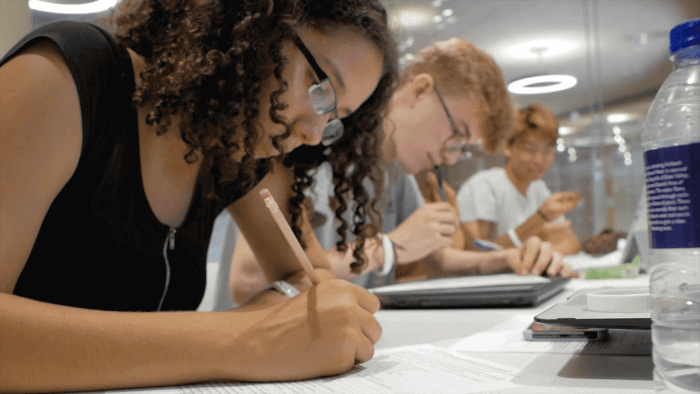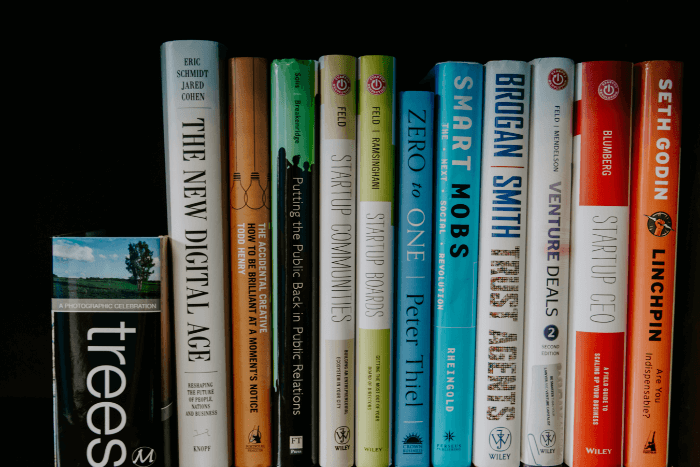5 Tips for Productive Study at Home

Even for the most productive amongst us, working from home can often be a challenge. The temptation to stay in our pyjamas and treat ourselves to an extra hour in bed can be a hard habit to quit. However, these tips and tricks will help you to stay on track!
1. Create the Right Routine
In the absence of a school schedule, trying to work out which tasks to prioritise can feel overwhelming. Start by keeping it simple and blocking out a basic timetable for yourself. Creating a separate routine from what you’d usually do on a day off can make those more relaxed days feel all the more worthwhile!
As comfortable as lounging in pyjamas can be, getting dressed can help your brain shift into the right headspace for work. Similarly, try and limit the late nights! The more awake you are, the quicker and more efficient you’ll be at ticking off your to-do list, leaving you more downtime later in the day.
Most importantly, be realistic about what you can achieve. Break up your day’s goals into three to five manageable tasks, and enjoy the satisfaction of crossing them off after you complete them!
Pro tip: If you’re struggling with completing the tasks you’ve set yourself, don’t be afraid to adjust your routine and set yourself fewer daily goals with more time to finish them. It’s better to end the day reflecting on the satisfaction of completing one or two tasks to a high standard!
2. Organise a Space
When working from home, it’s easy to blur the line between study time and chill time, so try to create a clear divide between your work and relaxation spaces.
Whilst studying in bed may seem more comfortable, it can make it difficult to get into the right mindset to study, as well as making it harder to switch off that mindset when night-time rolls around. Instead, ensure you have a clear space to work that’s separate to where you’d usually de-stress, whether that’s a room other than your bedroom, or a designated desk space.
By setting up these boundaries, you’ll find it quicker and easier to match your headspace to your work space, allowing you to most efficiently achieve your goals – as well as preserving your treasured time off!
Pro tip: Try and keep your work space organised and tidy. Research shows that tidiness directly affects our productivity and saves you time by making resources and notes easier to find. The more productive you are, the quicker and more efficiently the job gets done!
3. No Distractions? No Problem
We’re living in an incredible world that’s more connected than ever. However, more worldwide connections also means more worldwide distractions.
While schools often have limitations on when you can access your phone, there are none of these rules at home. Nobody likes to feel as though they’re missing out, and the temptation to check the newsfeed or answer a friend’s text can overcome the best of us, and before you know it, a whole hour has whittled away behind the screen.
Minimise the temptation by putting your phone out of sight and out of mind. If you’re prone to message back and forth with friends, let them know that you’re going to be studying for the next hour or two. Your friends will want to support you the best they can, so make it clear that they shouldn’t message you at this time and even better, put your notifications on mute.
By working with your friends in this way, you can help each other. If they see you online during your designated study time, get them to call you out on it! If there’s a parent, guardian or sibling you trust in the house, give them your phone to look after while you’re working. That way, even when the temptation to check-up inevitably comes along, you’ll still be limiting your access.
Pro tip: There are plenty of useful apps you can download to limit your phone screen time and block certain apps at certain hours of the day.

4. Get Inventive With How You Work
Working from home is a great opportunity to try a different way of studying, so make the most of it!
While school libraries and classrooms can often limit you to silent study and small spaces, your own home gives you the opportunity to mix it up a little. Studying with music, reciting things out loud, coming up with rhymes, poems or even songs to remember facts, and filling your study space with posters, pictures and flashcards are all good starting points to make your work feel more exciting.
Just because you’re sticking to a routine, doesn’t mean you have to stick to just one method. Instead, view home study as the perfect chance to find a unique way of working that fits you best. There are three different types of learning styles for you to try:
- Visual – use resources such as posters, pictures and text to help visualise concepts
- Auditory – try looking at online TED talks, YouTube videos, audiobooks or online lectures
- Kinesthetic – get creative acting out concepts or creating learning aids to better your understanding of a topic
Pro tip: Mixing up your study style will help keep work engaging and enjoyable. To avoid boredom, challenge yourself to spend a day using each of the three learning styles, and then reflect on the aspects of each one that worked best for you.
5. Relax
Most importantly, take breaks. Just as you must be strict in following your study routine, be strict in giving yourself time off too. You’ll find work easier and more enjoyable, and you’ll have a greater chance of success if you’re well rested. Motivate yourself to complete tasks by promising yourself rewards for completing them – whether that’s a sweet treat or the chance to finish off a TV episode. Fun activities will feel all the better knowing that you worked hard to earn them!
Equally, if you’re struggling with a concept or something just isn’t clicking, give yourself 15 minutes where you switch off and do something else, then try again. Everything will seem clearer with a refreshed brain and it may give you the thinking space to come up with a new angle to approach the problem with.
Pro tip: Make sure you’re getting fresh air – spending a few minutes in the garden or opening a window can do the world of good in helping you think straight.
Our Top Tips:
- Provide structure to your work by creating a daily routine
- Maintain boundaries between your organised work space and relaxation space
- Minimise distractions by limiting phone access whilst working
- Use the opportunity to get inventive with your study methods
- Allow yourself time to relax
Want to study in the city of Oxford?
Recommended articles
Demystifying the UK University Application Process for Educators
The UCAS applications process for UK universities can appear daunting for students and teachers alike. With that said, educators play an important role in students’ success with their university applications. As such, it is paramount that educators understand the UK...
How to Secure Strong References for Your UCAS Applications
References are a crucial component of your UCAS application, offering a holistic view of your potential as an applicant. Your application will ask for references who can testify to your potential as a student and what you have to offer the university or college...
A Day in the Life of a History Student
It’s been over three years since I first sent my UCAS application off to Oxford University, meeting the early submission deadline by a slither and breathing a sigh of relief. Now, as a third-year History finalist on the cusp of exams, I can safely say that these...


